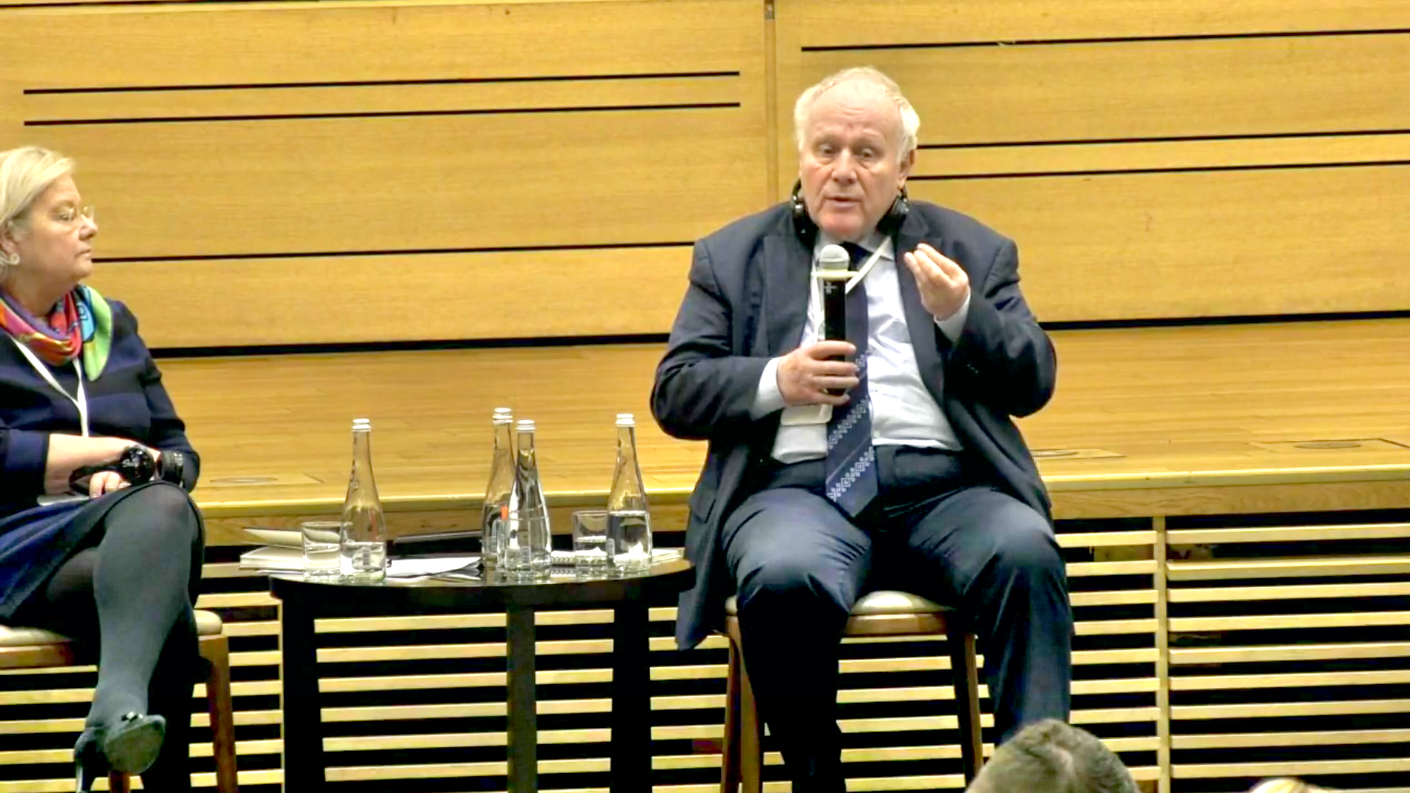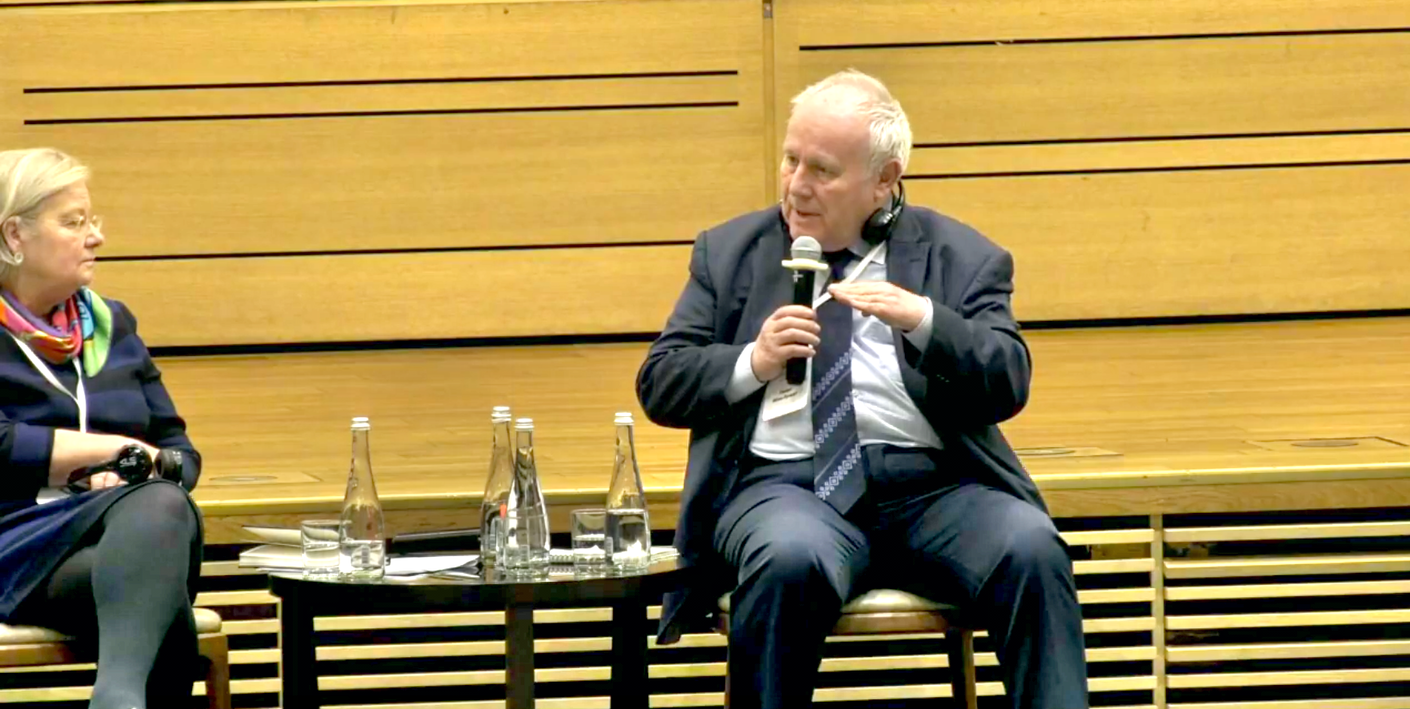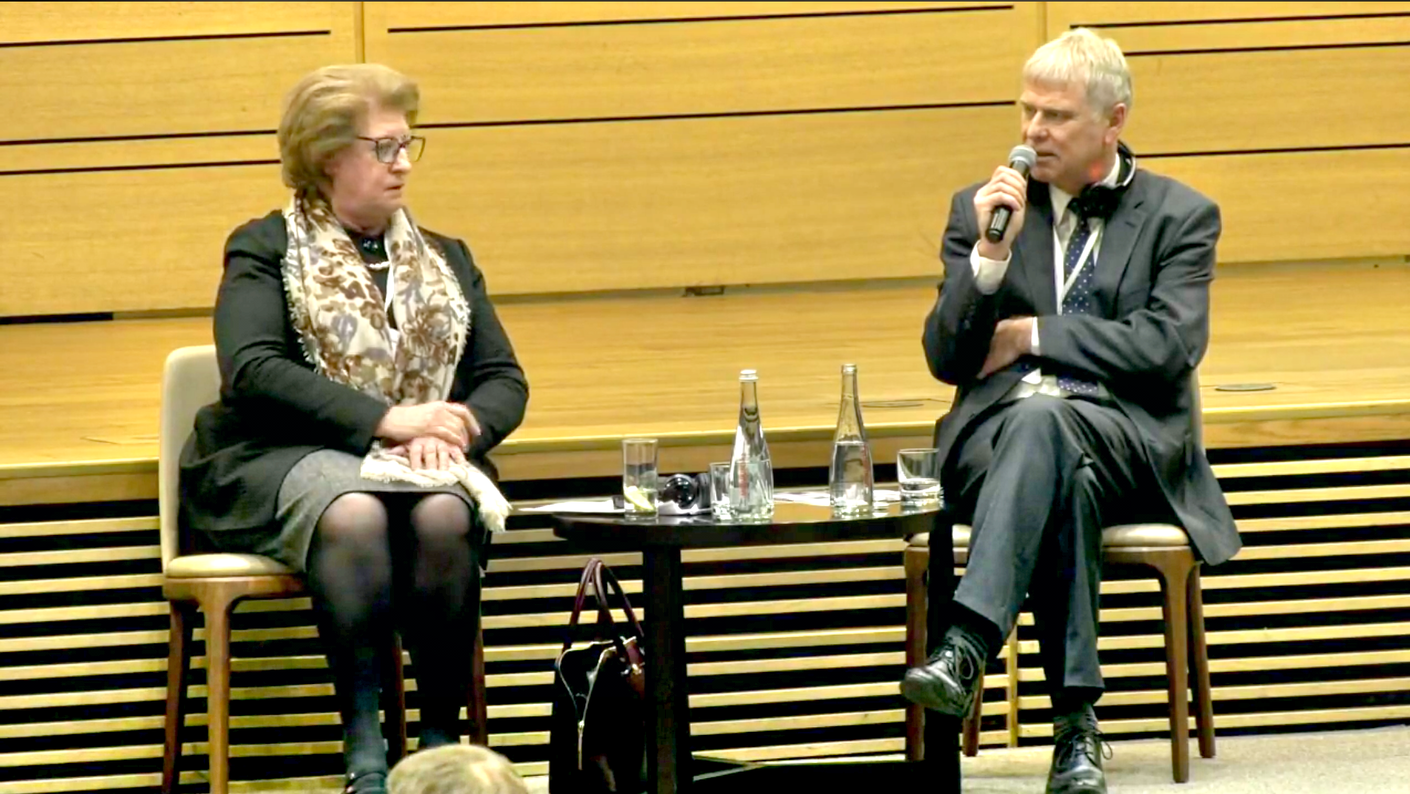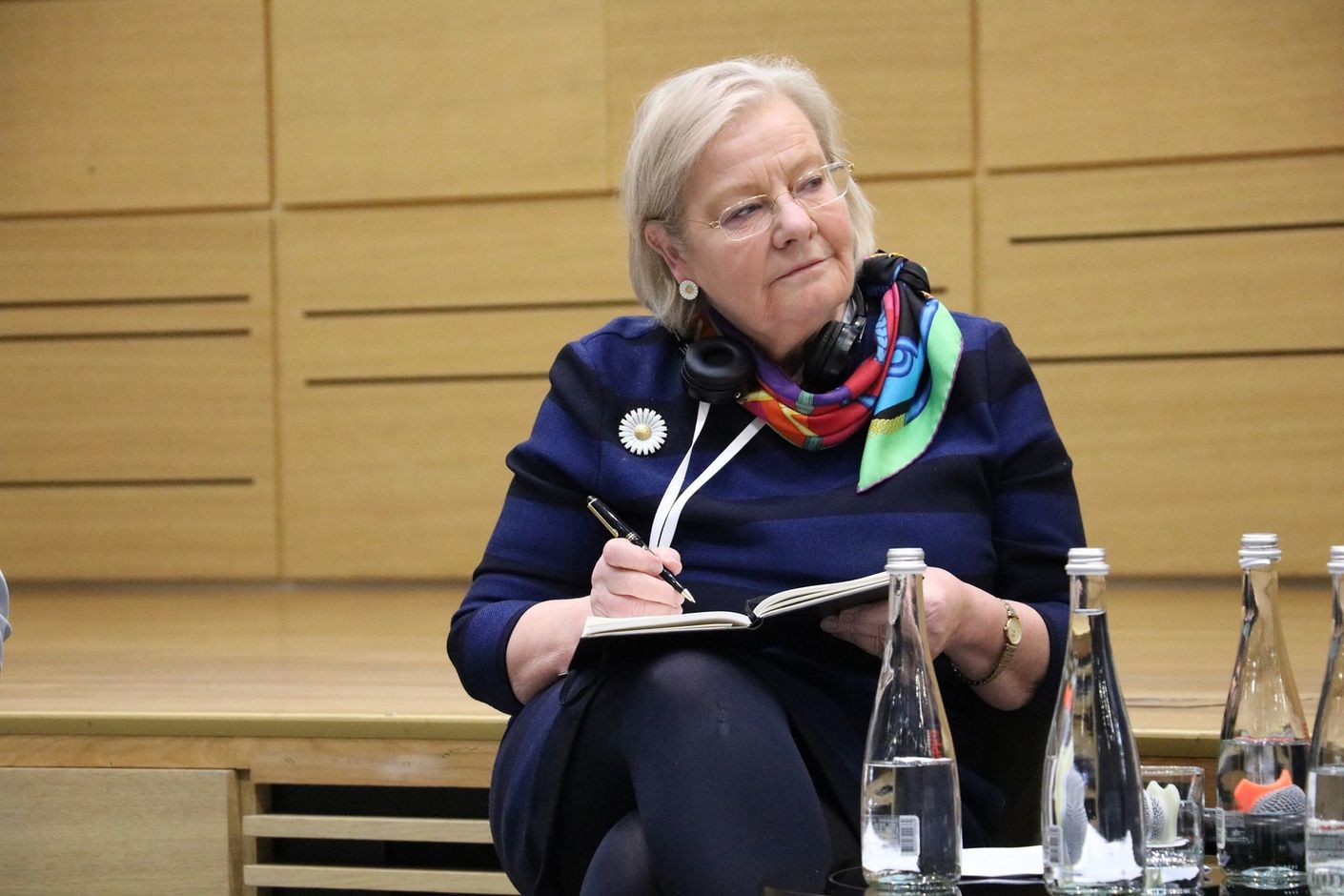Consulting the public on Constitutional amendments: perspectives from international experts

On 25 February 2020, the plan of public discussion on the amendments to the Constitution of Ukraine regarding the decentralisation of power was presented in Kyiv. The event gathered representatives of the Verkhovna Rada of Ukraine, Government, Office of the President of Ukraine, associations of local self-government, international organisations and institutions, as well as expert community, who together in structured discussions determined the format, subject matter, expected results and transparency of future consultations in the regions.
International experts who took part in the expert panel of the event “Through consensus – to amend the Constitution of Ukraine regarding decentralisation”, shared foreign experience in implementing decentralisation and gave valued recommendations on how public consultations in the regions can help reach consensus on various issues.

In his speech, Professor Georg Milbradt, Special Envoy of the Government of the Federal Republic of Germany for the Ukrainian reform in the areas of governance and decentralisation, noted that decentralisation reform is very popular among the population, people support it and that the reform is a win-win situation for the state and the population. He also explained the ways to ensure a consensus among society as concerns the constitutional amendments.
“First of all this is a matter of trust and the consultations are a very good method to build this trust among Ukrainian citizens and stakeholders from bottom-up through respect and dialogue. Further the idea is to learn from the knowledge on the local level and to hear the opinions, fears and hopes of the citizens living in this huge country. Here also the associations of LSG play a vital role. Ultimately it will be important to prove that the opinions were taken into account and that the process is inclusive. Also, feedback is important and to this end a solid documentation of the process.”

He also emphasised that there is common ground for the elaboration of constitutional amendments – the European Charter of Local Self-Government.
“The European Charter of Local Self-Government is a guiding reference for all European countries and is reflected in many constitutions of European countries. The text itself is therefore also a solid basis for the formulation of articles. Of course, it should be brought in the Ukrainian context.”
Mr Milbradt mentioned the importance to separate own and delegated types of tasks of local self-government.
“A fundamental and urgent issue facing the whole LSG in Ukraine is the unclear division between which tasks are delegated by the State to LSG bodies to perform (“delegated tasks”), and which tasks fall entirely under local self-government’s responsibility and discretionary powers (“own tasks”). In terms of task autonomy and financial autonomy LSGs are allowed to regulate and manage a substantial share of public affairs under their own responsibility. For this, they must have adequate financial resources as well, which they may utilise at their own discretion.The distinction between own tasks and delegated tasks also has implications for the prospective system of supervision over LSG bodies, because oversight of own and delegated tasks is based on different criteria and governed by different principles.”
Mr Milbradt also outlined the task of the oversight and specifics of this mechanism in connection to local self-government.
“The most important task of supervision is to enable LSG to fulfil its responsibilities and powers in the best possible way for the benefit of its residents by providing advice and support. Therefore, supervision is first and foremost done in partnership between LSG and the state and this is true for all systems in Europe that follow the European Charter of Local Self-Government. Any oversight mechanism should be supportive of local self-government, with the aim of providing robust advice and guidance in a spirit of trust and cooperation.”

Rivo Noorkõiv, Local Government and Territorial Administration Expert, Estonia, emphasised the role of the European Charter of Local Self-Government in terms of granting rights to local self-government and the need for Constitutional amendments
“The Constitution is the axis of constitutional and political debate. It should not be too detailed, which would make it requiring frequent change. In the case of both the Constitution and the European Charter of Local Self-Government, it is important to put the emphasis on the values that they carry. The Charter grants the local authorities the rights, which must be guaranteed by national laws. The Charter also offers the possibility for strengthening the coherence between the Constitution and the European legal space. I see that the amendment of the Constitution is vital, and during the process the most helpful solutions for the Ukrainian people must be found for continuing with decentralisation. It is important to envision the future Ukraine where people would like to live; what are the traditions to keep, and what needs to change.”
He also shared his opinion on what public discussions in the regions should bring as a result.
“Public debates, based on a wide range of experience, should lead to an accepted agreement that satisfies the stakeholders in the view of the future. Regional discussions should result in clear goals of the reform and create the readiness for change. Constitutional amendments alone are just preconditions; it is important that people are behind the desired outcomes.”
Rivo Noorkõiv stressed on the crucial need to work on building up trust and maintain communication in this process.
“It is certainly necessary to work on creating an atmosphere of trust that promotes the emergence of shared ideas. It is critical to invest in building high quality discussion processes and finding leaders that different stakeholders can have confidence in. Things happen when there is political will and favourable public opinion.”

Helena Linde, Senior Legal Advisor, Department of Law, Swedish Association of Local Authorities and Regions (SALAR), also mentioned trust, respect and dialogue as significant aspects of relations between local and state authorities.
“There are 290 municipalities in Sweden, different in size and capacity, but all of them have the same tasks, which is really a challenge. During these last two days in Ukraine, I have heard a lot about trust, and in our country, everything is built on trust. But how is it built up? It is built up from the bottom, with respect and dialogue, and I would say that our main tools in building a dialogue between local self-government and the state are assessment, benchmarking, monitoring and transparency. Then the citizens will be able to compare.”
18 December 2025
The U-RESTORE project has launched the...
The Ukraine Recovery Support for Transparency, Outreach, Resilience and Empowerment (U-RESTORE) project is launching...
18 December 2025
У Тростянецькій громаді завершили перший в...
У Тростянці на Сумщині завершено унікальний для України проєкт зеленої реконструкції п’ятиповерхового житлового...
18 December 2025
Вакансія: Керівник (-ця) напряму «Підтримка Асоціацій ОМС»
Вакансія: Керівник (-ця) напряму «Підтримка...
Опис контексту Для реагування на мінливі потреби українських муніципалітетів і національних суб'єктів у воєнний...
18 December 2025
До кінця року у громадах України завершать 203 проєкти розвитку — охоплення понад 5 млн людей
До кінця року у громадах України завершать 203...
До кінця 2025 року в громадах по всій країні буде завершено 203 проєкти розвитку та відновлення. Про це повідомив...